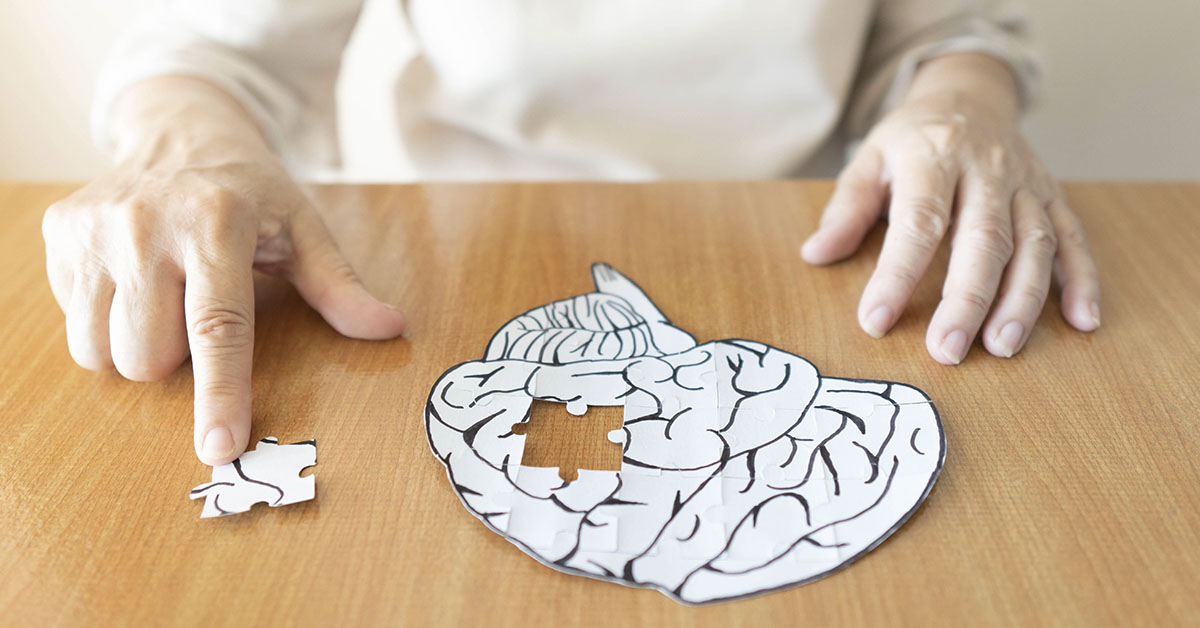Alzheimer’s disease is a neurodegenerative disorder characterized by memory loss, cognitive decline, and behavioral changes. It is the most common form of dementia, affecting millions of people worldwide. While the cause of Alzheimer’s disease is still not fully understood, recent research from the University College London (UCL) has shed light on a potential link between human growth hormone treatments and the development of Alzheimer’s disease.
Understanding Alzheimer’s Disease
Alzheimer’s disease is a progressive brain disorder that gradually affects memory, thinking, and behavior. It is marked by the accumulation of abnormal protein aggregates, including amyloid-beta plaques and tau tangles, in the brain. These protein build-ups disrupt the communication between brain cells, leading to their gradual degeneration and eventual loss. (1)
To make it easier to understand, Alzheimer’s disease is like a traffic jam in your brain. The more cars that are on the road, the slower they move and the more likely they are to crash into each other. In this case, the cars are proteins called amyloid-beta plaques and tau tangles. When these proteins build up in the brain, they disrupt communication between cells and cause them to degenerate. (2)
Human Growth Hormone and Human Growth Hormone Treatments
Human growth hormone (HGH) is a naturally occurring hormone produced by the pituitary gland in your brain. It plays a crucial role in growth, cell regeneration, and maintaining healthy body tissues. Synthetic versions of HGH have been developed and used for various medical purposes, including treating individuals with growth hormone deficiencies and certain conditions affecting height. (3)
HGH is also used as a performance-enhancing drug by athletes and bodybuilders. It can help increase muscle mass, reduce body fat, improve athletic performance, and speed up recovery from injuries. However, the use of HGH for these purposes is illegal in most countries and can have serious side effects.
The Study and Its Findings
Researchers from UCL conducted a study that was published in Nature Medicine, which unveiled a potential connection between human growth hormone treatments and Alzheimer’s disease. The study focused on a cohort of individuals who had been treated with cadaver-derived human growth hormone (c-hGH) between 1959 and 1985 in the UK. The c-hGH was extracted from the pituitary glands of deceased individuals and was used to treat various causes of short stature. (4)
The study found that five out of the eight individuals in the cohort who had been treated with c-hGH in childhood later developed symptoms of dementia, with some diagnosed with Alzheimer’s disease. These patients exhibited an unusually early onset of symptoms, suggesting that their Alzheimer’s disease was not the typical sporadic form associated with old age.
Further analysis showed that the c-hGH used in the treatments had been contaminated with amyloid-beta proteins. Notably, archived samples of c-hGH were found to transmit amyloid-beta pathology when injected into laboratory mice. These findings suggest that individuals exposed to contaminated c-hGH may be at an increased risk of developing Alzheimer’s disease later in life.
Read More: 10 Medications Linked to Dementia
Implications and Limitations
It is important to note that the use of c-hGH from deceased persons’ brains as a treatment was discontinued in 1985 due to the recognition that some batches were contaminated with prions, which caused Creutzfeldt-Jakob disease (CJD). Today, the c-hGH used is made in a laboratory. Therefore, there is no ongoing risk of transmission via this specific route. Additionally, there have been no reported cases of Alzheimer’s disease acquired from any other medical or surgical procedures.
However, the study’s findings underscore the significance of reviewing and implementing measures to prevent accidental transmission of amyloid-beta in other medical and surgical procedures. The researchers emphasize the need for caution and further investigation to mitigate potential risks and safeguard patient well-being.
Preventing the Development of Alzheimer’s Disease
While there is no guaranteed way to prevent Alzheimer’s disease, certain lifestyle choices and interventions may help reduce the risk or delay its onset. Here are some recommendations (5):
- Regular Physical Exercise: Engage in regular aerobic activities, such as walking, jogging, or swimming, which can help improve cognitive function and overall brain health.
- Healthy Diet: Follow a balanced diet that focuses on fresh fruits and vegetables, whole grains, lean proteins, and healthy fats. Avoid excessive consumption of processed foods, added sugars, and saturated fats.
- Mental Stimulation: Keep your brain active by engaging in mentally stimulating activities, such as reading, puzzles, learning new skills, or playing musical instruments.
- Social Engagement: Stay socially active and maintain strong social connections, as social interactions can help stimulate cognitive function and provide emotional support.
- Quality Sleep: Aim for regular sleep patterns and prioritize sufficient sleep duration to support cognitive function and overall well-being.
- Manage Chronic Conditions: Take proactive steps to manage conditions like hypertension, diabetes, and obesity, as these can increase the risk of developing Alzheimer’s disease.
- Stay Mentally and Emotionally Healthy: Manage stress effectively, practice relaxation techniques, and seek mental health support when needed.
The Bottom Line
The study conducted by researchers from UCL highlights a potential link between human growth hormone treatments and the development of Alzheimer’s disease. Although the risk of transmission via this specific treatment route has been eliminated since 1985, precautions should be taken in other medical and surgical procedures to prevent the potential transmission of amyloid-beta proteins. By adopting a healthy lifestyle and implementing preventive measures, individuals can potentially reduce their risk of developing Alzheimer’s disease and support overall brain health.
Read More: Can Coconut Oil Help With Dementia?
Sources
- “What is Alzheimer’s Disease?” ALZ
- “Traffic jam hypothesis: Relationship between endocytic dysfunction and Alzheimer’s disease.” Pubmed. Nobuyuki Kimura and Katsuhiko Yanagisawa. October 2018.
- “Human growth hormone.” Health Direct
- “Iatrogenic Alzheimer’s disease in recipients of cadaveric pituitary-derived growth hormone.” Nature. Gargi Banerjee, Simon F. Farmer, Harpreet Hyare, Zane Jaunmuktane, Simon Mead, Natalie S. Ryan, Jonathan M. Schott, David J. Werring, Peter Rudge and John Collinge. January 29, 2024.
- “Reducing Risk of Alzheimer’s Disease.” CDC

